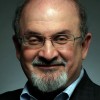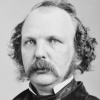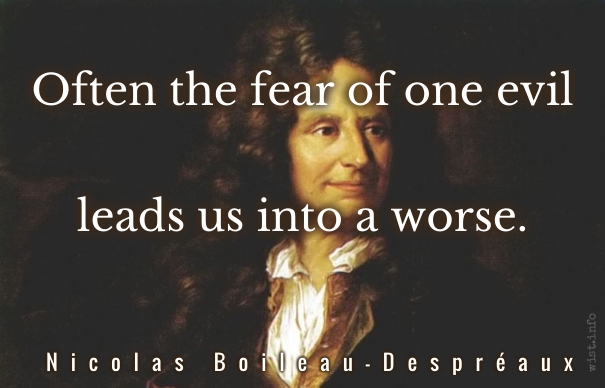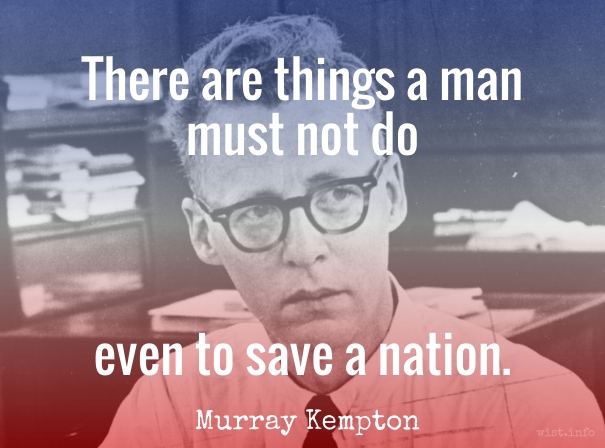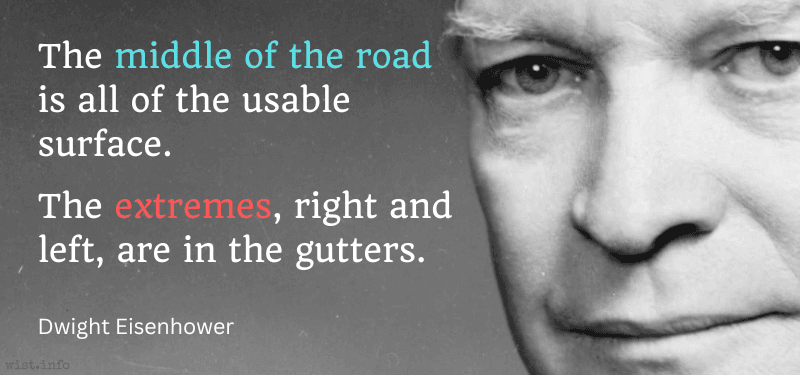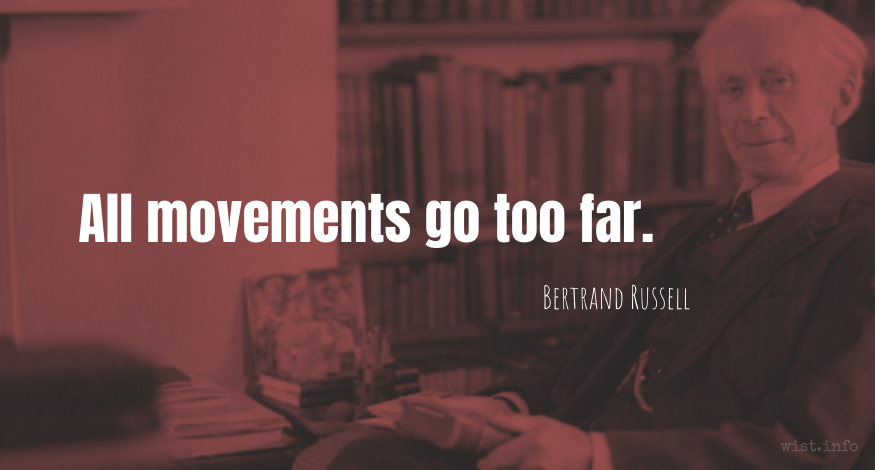Neither all bad nor all good. A certain sage reduced the whole of wisdom to the golden mean. Carry right too far and it becomes wrong. The orange squeezed completely dry gives only bitterness. Even in enjoyment you shouldn’t go to extremes. The intellect itself will go dry if pressed too hard, and if you milk a cow like a tyrant you will draw only blood.
[Nunca apurar, ni el mal, ni el bien. A la moderación en todo redujo la sabiduría toda un sabio. El sumo derecho se hace tuerto, y la naranja que mucho se estruja llega a dar lo amargo. Aun en la fruición nunca se ha de llegar a los extremos. El mismo ingenio se agota si se apura, y sacará sangre por leche el que esquilmare a lo tirano.]
Baltasar Gracián y Morales (1601-1658) Spanish Jesuit priest, writer, philosopher
The Art of Worldly Wisdom [Oráculo Manual y Arte de Prudencia], § 82 (1647) [tr. Maurer (1992)]
(Source)
(Source (Spanish)). Alternate translations:
Not to pry too much neither into good nor evil. A wise man comprehended all his wisedom in this Precept, ne quid nimis, nothing too much. Too strict a justice degenerates into injustice. The Orange that is too much squeezed, yields a bitter juice. Nay in enjoyment, we ought never to go to either of the two extremes. Wit itself is exhausted by too much straining. By endeavouring to draw down too much milk, bloud is often fetched.
[Flesher ed. (1685)]
Drain Nothing to the Dregs, neither Good nor Ill. A sage once reduced all virtue to the golden mean. Push right to the extreme and it becomes wrong: press all the juice from an orange and it becomes bitter. Even in enjoyment never go to extremes. Thought too subtle is dull. If you milk a cow too much you draw blood, not milk.
[tr. Jacobs (1892)]
Drink nothing to the dregs, either of the bad, or of the good, for to moderation in everything has one sage reduced all wisdom. Too great justice become injustice, and the orange, squeezed too hard, turns bitter; even in enjoyment, do not go too far. The spirit itself grows weary if worked too long, and he draws blood instead of milk, who milks too hard.
[tr. Fischer (1937)]
Quotations about:
extremism
Note not all quotations have been tagged, so Search may find additional quotes on this topic.
The other threat to the security of our tradition, I believe, lies at home. It is the current fear of radical ideas and of people who propound them. I do not agree with extremists of either the left or the right, but I think they should be allowed to speak and to publish, both because they themselves have, and ought to have, rights, and once their rights are gone, the rights of the rest of us are hardly safe.
Jane Jacobs (1916-2006) American-Canadian journalist, author, urban theorist, activist
“No Virtue in Meek Conformity” (1952)
(Source)
Foreword to her response to a State Department Loyalty Security Board interrogatory (1952-03-25). Reprinted in Vital Little Plans (2016).
The enemy for the fanatic is pleasure, which makes it extremely important to continue to indulge in pleasure. Dance madly. That is how you get rid of terrorism.
Salman Rushdie (b. 1947) Indian novelist
“Public Event, Private Lives,” speech, University of Colorado, Boulder (2013-04-17)
(Source)
It is the certainty that they possess the truth that makes men cruel.
[C’est la certitude qu’ils tiennent la vérité qui rend les hommes cruels.]
Anatole France (1844-1924) French poet, journalist, novelist, Nobel Laureate [pseud. of Jaques-Anatole-François Thibault]
(Misquotation)
Widely attributed (in French and English) to Anatole France, but not found in his works, including the one location it is sometimes cited from, Les Dieux Ont Soif [The Gods Are Thirsty, The Gods Are Athirst, The Gods Will Have Blood] (1912), in either English translation or, more importantly, in the original French.
While thematically keeping in the novel's depiction of the French Revolution and the Terror, the closest match to the quote I can find is this portion of ch. 22, talking about the expediting of the trials of those charged with counter-revolutionary crimes, eliminating the need to prove a misdeed by simply inquiring as to the accused's beliefs.
Justice thus abbreviated satisfied them; the pace was quickened, and no obstacles were left to fret them. They limited themselves to an inquiry into the opinions of the accused, not conceiving it possible that anyone could think differently from themselves except in pure perversity. Believing themselves the exclusive possessors of truth, wisdom, the quintessence of good, they attributed to their opponents noting but error and evil. They felt themselves all-powerful; they envisaged God.
[tr. Allinson (1913), Jackson (1921)]
Justice, thus curtailed, satisfied them; the pace was quickened and no obstacles were left to confuse them. They confined themselves to inquiring into the opinions of the accused, not conceiving it possible that anyone, except from pure perversity, could think differently from themselves. Believing themselves to possess a monopoly of truth, wisdom and goodness, they attributed to their opponents all error, stupidity and evil. They felt themselves omnipotent: their eyes had seen God.
[tr. Davies (1979)]
La justice abrégée les contentait. Rien, dans sa marche accélérée, ne les troublait plus. Ils s’enquéraient seulement des opinions des accusés, ne concevant pas qu’on pût sans méchanceté penser autrement qu’eux. Comme ils croyaient posséder la vérité, la sagesse, le souverain bien, ils attribuaient à leurs adversaires l’erreur et le mal. Ils se sentaient forts : ils voyaient Dieu.
[Original]
There is virtually no opinion an individual can hold that is so outlandish that he will not find other believers on the Web.
Elizabeth Kolbert (b. 1961) American journalist and author
“The Things People Say,” The New Yorker (2009-11-02)
(Source)
Trouble arises when either science or religion claims universal jurisdiction, when either religious dogma or scientific dogma claims to be infallible. Religious creationists and scientific materialists are equally dogmatic and insensitive. By their arrogance they bring both science and religion into disrepute. The media exaggerate their numbers and importance. The media rarely mention the fact that the great majority of religious people belong to moderate denominations that treat science with respect, or the fact that the great majority of scientists treat religion with respect so long as religion does not claim jurisdiction over scientific questions.
Freeman Dyson (1923-2020) English-American theoretical physicist, mathematician, futurist
“Progress in Religion,” Templeton Prize acceptance speech, Washington National Cathedral (9 May 2000)
(Source)
Violent zeal for truth has a hundred to one odds to be either petulancy, ambition, or pride.
Of course, when stood next to the choice of American political parties (“So, would you like Right Wing, or Supersized Right Wing with Extra Fries?”) my English fuzzy middle-of-the-roadness probably translates easily as bomb-throwing Trotskyist, but when I get to chat to proper lefties like Ken MacLeod or China Mieville I feel myself retreating rapidly back into the woffly Guardian-reading why-can’t-people-just-be-nice-to-each-otherhood of the politically out of his depth.
Neil Gaiman (b. 1960) British author, screenwriter, fabulist
Blog entry (2003-06-15), “Walking Down the Street Naked, Possibly with a Mullet”
(Source)
When asked whether (and denying) he is a Communist.
He is onstage now to die, unrepentant to the last, and breathing the belief of all extremists always — that all misfortune comes from compromise and that only unyieldingness can win out.
Isaac Asimov (1920-1992) Russian-American author, polymath, biochemist
Asimov’s Guide to Shakespeare, “Henry VI, Part III” (1970)
(Source)
Regarding Clifford, the Lancastrian fanatic, in Act 2, sc. 6.
I am trying to do two things: dare to be a radical and not be a fool, which, if I may judge by the exhibitions around me, is a matter of no small difficulty.
James A. Garfield (1831-1881) US President (1881), lawyer, lay preacher, educator
Letter to Burke Aaron Hinsdale (1 Jan 1867)
(Source)
And so these men of Indostan
Disputed loud and long,
Each in his own opinion
Exceeding stiff and strong.
Though each was partly in the right
And all were in the wrong!So oft in theologic wars,
The disputants, I ween,
Rail on in utter ignorance
Of what each other mean,
And prate about an Elephant
Not one of them has seen!John Godfrey Saxe (1816-1887) American poet and satirist
“The Blind Men and the Elephant,” st. 8 and “Moral” (c. 1861; publ. 1872)
(Source)
Saxe introduced the parable, which dates back to India (c. 500 BC) to American audiences. He wrote the poem originally against what he felt was extremism on both sides that led the the American Civil War.
Let us shun extremes, not only because each extreme is in itself a positive evil, but also because each extreme necessarily engenders its opposite. If we love civil and religious freedom, let us in the day of danger uphold law and order. If we are zealous for law and order, let us prize, as the best safeguard of law and order, civil and religious freedom.
Thomas Babington Macaulay (1800-1859) English writer and politician
Speech on re-election to Parliament, Edinburgh (2 Nov 1852)
(Source)
I decided that perhaps I would like to think of myself as an extremist — in the light of the spirit which made Jesus an extremist for love. If it sounds as though I am comparing myself to the Savior, let me remind you that all who honor themselves with the claim of being “Christians” should compare themselves to Jesus. Thus I consider myself an extremist for that brotherhood of man which Paul so nobly expressed: “There is neither Jew nor Greek, there is neither bond nor free, there is neither male nor female: for ye are all one in Christ Jesus.” Love is the only force on earth that can be dispensed or received in an extreme manner, without any qualifications, without any harm to the giver or to the receiver.
Martin Luther King, Jr. (1929-1968) American clergyman, civil rights leader, social activist, preacher
Playboy interview (Jan 1965)
(Source)
Often the fear of one evil leads us into a worse.
[Souvent la peur d’un mal nous conduit dans un pire.]
Nicolas Boileau-Despréaux (1636-1711) French poet and critic
The Art of Poetry [L’Art Poétique], Canto 1, l. 64 (1674)
(Source)
(Source (French)).
Though this sounds like a profound philosophical comment, in reality it refers to writers overcompensating for problems in their work. Soame (1892) translates this and the following line thus:
A verse was weak, you turn it much too strong.
And grow obscure for fear you should be long.
As a member of the avant-garde who is capable of perceiving the conspiracy before it is fully obvious to an as yet unaroused public, the paranoid is a militant leader. He does not see social conflict as something to be mediated and compromised, in the manner of the working politician. Since what is at stake is always a conflict between absolute good and absolute evil, what is necessary is not compromise but the will to fight things out to a finish. Since the enemy is thought of as being totally evil and totally unappeasable, he must be totally eliminated — if not from the world, at least from the theatre of operations to which the paranoid directs his attention. This demand for total triumph leads to the formulation of hopelessly unrealistic goals, and since these goals are not even remotely attainable, failure constantly heightens the paranoid’s sense of frustration. Even partial success leaves him with the same feeling of powerlessness with which he began, and this in turn only strengthens his awareness of the vast and terrifying quality of the enemy he opposes.
Richard Hofstadter (1916-1970) American historian and intellectual
“The Paranoid Style in American Politics,” Herbert Spencer Lecture, Oxford (Nov 1963)
(Source)
Reprinted in Harpers (Nov 1964).
Virtue, then, is a state involving rational choice, consisting in a mean relative to us and determined by reason — the reason, that is, by reference to which the practically wise person would determine it. It is a mean between two vices, one of excess, the other of deficiency. It is a mean also in that some vices fall short of what is right in feelings and actions, and others exceed it, while virtue both attains and chooses the mean.
[ἔστιν ἄρα ἡ ἀρετὴ ἕξις προαιρετική, ἐν μεσότητι οὖσα τῇ πρὸς ἡμᾶς, ὡρισμένῃ λόγῳ καὶ ᾧ ἂν ὁ φρόνιμος ὁρίσειεν. μεσότης δὲ δύο κακιῶν, τῆς μὲν καθ᾽ ὑπερβολὴν τῆς δὲ κατ᾽ ἔλλειψιν: καὶ ἔτι τῷ τὰς μὲν ἐλλείπειν τὰς δ᾽ ὑπερβάλλειν τοῦ δέοντος ἔν τε τοῖς πάθεσι καὶ ἐν ταῖς πράξεσι, τὴν δ᾽ ἀρετὴν τὸ μέσον καὶ εὑρίσκειν καὶ αἱρεῖσθαι.]
Aristotle (384-322 BC) Greek philosopher
Nicomachean Ethics [Ἠθικὰ Νικομάχεια], Book 2, ch. 5 (2.6.15-16) / 1106b.35 (c. 325 BC) [tr. Crisp (2000)]
(Source)
(Source (Greek)). Alternate translations:
Virtue then is “a state apt to exercise deliberate choice, being in the relative mean, determined by reason, and as the man of practical wisdom would determine.” It is a middle state between too faulty ones, in the way of excess on one side and of defect on the other: and it is so moreover, because the faulty states on one side fall short of, and those on the other exceed, what is right, both in the case of the feelings and the actions; but Virtue finds, and when found adopts, the mean.
[tr. Chase (1847)]
Moral virtue, then, is a certain formed state, or habit of purpose, which conforms to the relative mean in action, and which is determined to that mean by reason, or as the prudent man would determine it. And it is the mean between two vices, one of which consists in excess, and the other in defect. So that vices sometimes fall short of what is right in our emotions and in our actions, and sometimes exceed it, while virtue fines the mean and chooses it.
[tr. Williams (1869)]
Virtue then is a state of deliberate moral purpose consisting in a mean that is relative to ourselves, the mean being determined by reason, or as a prudent man would determine it. It is a mean state firstly as lying between two vices, the vice of excess on the one hand, and the vice of deficiency on the other, and secondly because, whereas vices either fall short of or go beyond what is proper in the emotions and actions, virtue not only discovers but embraces the mean.
[tr. Welldon (1892)]
Virtue, then, is a habit or trained faculty of choice, the characteristic of which lies in moderation or observance of the mean relatively to the persons concerned, as determined by reason, i.e. by the reason by which the prudent man would determine it. And it is a moderation, firstly, inasmuch as it comes in the middle or mean between two vices, one on the side of excess, the other on the side of defect; and, secondly, inasmuch as, while these vices fall short of or exceed the due measure in feeling and in action, it finds and chooses the mean, middling, or moderate amount.
[tr. Peters (1893)]
Virtue, then, is a state of character concerned with choice, lying in a mean, i.e. the mean relative to us, this being determined by a rational principle, and by that principle by which the man of practical wisdom would determine it. Now it is a mean between two vices, that which depends on excess and that which depends on defect; and again it is a mean because the vices respectively fall short of or exceed what is right in both passions and actions, while virtue both finds and chooses that which is intermediate.
[tr. Ross (1908)]
Virtue then is a settled disposition of the mind determining the choice of actions and emotions, consisting essentially in the observance of the mean relative to us, this being determined by principle, that is, as the prudent man would determine it. And it is a mean state between two vices, one of excess and one of defect. Furthermore, it is a mean state in that whereas the vices either fall short of or exceed what is right in feelings and in actions, virtue ascertains and adopts the mean.
[tr. Rackham (1934)]
Virtue, then, is a deliberately choosing state, which is in a medial condition in relation to us, one defined by a reason and the one by which a practically-wise person would define it. Also, it is a medial condition between two vices, one of excess and the other of deficiency. Further, it is also such a condition because some vices are deficient in relation to what the relevant feelings and actions should be and other are excessive, but virtue both finds the mean and chooses it.
[tr. Reeve (1948)]
[Ethical] virtue, then, is a habit, disposed toward action by deliberate choice, being at the mean relative to us, and defined by reason and as a prudent man would define it. It is a mean between two vices, one by excess and the other by deficiency; and while some of the vices exceed while the others are deficient in what is right in feelings and actions, virtue finds and chooses the mean.
[tr. Apostle (1975)]
So virtue is a purposive disposition, lying in a mean that is relative to us and determined by a rational principle, and by that which a prudent man would use to determine it. It is a mean between two kinds of vice, one of excess and the other of deficiency; and also for this reason, that whereas these vices fall short of or exceed the right measure in both feelings and actions, virtue discovers the mean and chooses it.
[tr. Thomson/Tredennick (1976)]
Virtue, therefore, is a characteristic marked by choice, residing in the mean relative to us, a characteristic defined by reason and as the prudent person would define it. Virtue is also a mean with respect to two vices, the one vice related to excess, the other to deficiency; and further, it is a mean because some vices fall short of and others exceed what should be the case in both passions and actions, whereas virtue discovers and chooses the middle term.
[tr. Bartlett/Collins (2011)]
Extreme law is often extreme injustice.
[Ius summum saepe summa malitia est.]
Terence (186?-159 BC) African-Roman dramatist [Publius Terentius Afer]
Heauton Timoroumenos [The Self-Tormentor], Act 4, sc. 5, l. 48 (l. 796)
Alternate translations:
- "The highest law is often the greatest wrong."
- "Extreme justice is often extreme malice."
- "Rigorous law is often rigorous injustice."
It is not to be supposed that the age-old readiness to try to convert minds by pressure or suppression, instead of reason and persuasion, is extinct. Our protection against all kinds of fanatics and extremists, none of whom can be trusted with unlimited power over others, lies not in their forbearance, but in the limitations of our Constitution.
Robert H. Jackson (1892-1954) US Supreme Court Justice (1941-54), lawyer, jurist, politician
American Communications Association v. Douds, 339 U.S. 382, 438-439 (1950) [concurrence and dissent]
(Source)
Every political good carried to the extreme must be productive of evil.
Mary Wollstonecraft (1759-1797) English social philosopher, feminist, writer
The French Revolution, Book 5, ch. 4 (1794)
(Source)
People talk about the middle of the road as though it were unacceptable. Actually, all human problems, excepting morals, come into the gray areas. Things are not all black and white. There have to be compromises. The middle of the road is all of the usable surface. The extremes, right and left, are in the gutters.
Dwight David Eisenhower (1890-1969) American general, US President (1953-61)
Note (Nov 1963)
(Source)
The earliest reference I could find was second-hand, in William Safire, The New Language of Politics, "middle of the road" (1968) (later published as Safire's Political Dictionary, and including the entry through the 2008 edition).
I would remind you that extremism in the defense of liberty is no vice. And let me remind you also that moderation in the pursuit of justice is no virtue.
Barry Goldwater (1909-1998) American politician
Speech, accepting the GOP Presidential Nomination, San Francisco (16 Jul 1964)
(Source)
Goldwater believed the phrase originated in Cicero, though the source he used is questionable. Karl Hess was Goldwater's speech writer, and he said he derived the turn of phrase from Lincoln's "House Divided" speech. A closer match is this Thomas Paine passage.
More discussion of this quotation and its origins: On the Saying that "Extremism in Defense of Liberty is No Vice" - Niskanen Center
Half the vices that the world condemns most loudly have seeds of good in them and require moderate use rather than total abstinence.
Samuel Butler (1835-1902) English novelist, satirist, scholar
The Way of All Flesh, ch. 52 (1903)
(Source)
All movements go too far.
Bertrand Russell (1872-1970) English mathematician and philosopher
“On Being Modern-Minded,” The Nation (1937-01-09)
(Source)



